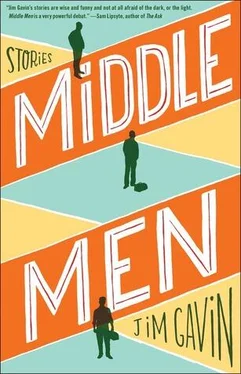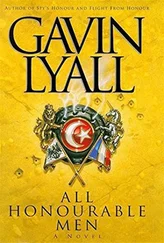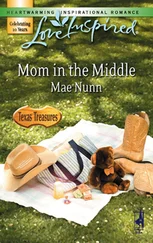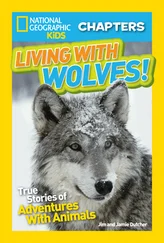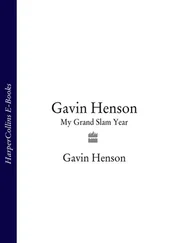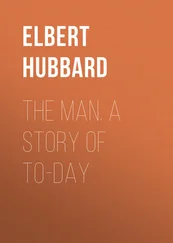Uncle Ray called me from the ninth hole at Canyon Crest.
“Listen, Sean,” he said. “I want to do you a favor. Me and Fig, we’ve been talking. We’ve got a story for you.”
It was ten o’clock on Friday morning. I got out of bed and looked out the window. The sky was still gray. I usually tried to sleep late enough for the morning fog to burn off along the coast. Sometimes this meant sleeping past noon, but I was willing to do it. I hadn’t talked to Ray in over a year.
“Your mom says the studio is giving you the runaround,” he said.
“You two are talking?”
“I called her yesterday to wish her happy birthday.”
“Her birthday was six months ago.”
“Come meet me and Fig for lunch.”
“Out there?”
“We’re getting steaks at the Mission.”
“You’re buying?”
“Sean,” he said. “Get cleaned up. We’re going to tell you this story. You can put it in a movie.”
“You’re buying, right?”
“Yeah, me and Fig.”
Eventually I found some long pants and got ready for the drive out to Riverside. When I stepped onto the second-floor landing, I spotted Mr. Nishihara, the landlord, down below in the courtyard, trying to fix the pump on the fountain. The stone cherubs were parched. I waited for him to take a break, but he just kept at it, so I popped the screen out of my bathroom window and jumped down onto a dumpster.
Minty was down in the alley, taking a shortcut back from the beach. With his board under his arm, he walked barefoot on the jagged asphalt, expertly sidestepping broken glass.
“It’s a toilet out there today,” he said, looking up at me. His wetsuit was peeled halfway down. I could see a rash spreading across his chest.
“I’m having steak for lunch.”
“Nice!” he said, raising his fist in solidarity. He kept walking and for a while I stood there on the dumpster, watching him until he disappeared around the corner.
There were two empty cans of Tecate in my passenger seat. I swept them down to the floor. Then I started my car. Then I kind of spaced out and forgot that I had started it, and started it again. That’s the worst sound in the world. A dead bottomless shriek, like a knife in a blender. For the first time in months I felt awake.
• • •
I was still driving around on a spare tire. The Triple-A guy who had assisted me said that as long as I drove under thirty-five miles per hour, the spare wouldn’t give out. Not for a while, anyway. A couple weeks had passed and so far it had held up. There was no traffic and the freeway felt quiet and peaceful, like an empty church. Instead of saying a prayer, I rolled down the windows and listened to the wind. A few people honked at me to drive faster. When they passed, some of them noticed my spare, and they waved at me, trying to apologize. I waved back, as if to say, No problem!
Somewhere east of Yorba Linda the tire disintegrated. Triple-A got there fast, like they always do, and the guy replaced my spare with a spare spare that he had on his truck. It didn’t cost me anything. He told me the same thing, about not driving over thirty-five, and then I watched him merge into the bright and hazy afternoon.
When I got to Riverside, I parked on a side street and walked toward the Mission Inn, a bizarre configuration of domes, turrets, and flying buttresses. Once a perennial retreat for oil tycoons and matinee idols, it was now a clubhouse for men like Uncle Ray, who had made a killing in the commercial irrigation business. He and Fig ate there a few times a week.
A black iron gate led to the atrium, where birds chirped and fountains bubbled. Passing through another gate into the hotel proper, I found myself in the same dim and mazy corridors I once ran through as a kid. Ray and his wife Holly had moved to Riverside in the early eighties. According to Ray, that’s where the action was—“irrigation-wise.” I loved going out there as a kid, climbing the giant rocks that littered his sprawling property, and then going for dinner at the Mission.
When I was in high school, we stopped coming to Riverside. Later I found out that Ray had loaned my mom some money, a lot of money, a great deal of money, actually, and he never let her forget this imperishable act of Christian charity. It wasn’t the first time she had gone to him for help. Over the years my mom had come to the bitter conclusion that the only reason Ray loaned her money was because he knew she would never pay him back. Instead of breaking her thumbs like a loan shark, Ray did something worse: he made her feel guilty and small for being such a financial wreck. Now and then, tired of paying tribute to his generosity, she would tell him to go to hell and they wouldn’t talk for a couple years. But then my mom would screw something up, drinking her way out of a job, falling back into debt, and she’d have no choice but to ask Ray for help. Ray once took me aside and said, “It’s not your mom’s fault. Some people understand money, and some people don’t.”
When I was a kid, Ray liked to roll twenty-dollar bills into tight little balls and bounce them off my head. To his credit he always let me keep the money. At the time I thought it was hilarious, and I still do. It was easy for my mom to portray Ray as the bad guy, but as I got older I got tired of her putting on the poor-mouth. Ray did care about her and he tried to help in the only way that made sense to him. I respected him for making his own way in the world. He came from nothing. I knew he had come from nothing, because at every opportunity, Ray would say, “I came from nothing.” Plus he could tell a story and make people laugh. Not many people in the world can do that. Even when he and my mom were fighting, he could make her laugh, especially when they got drunk. Once he made her laugh so hard she fell backward over the couch, Jack Tripper — style, a scene he would often reenact whenever there was a couch available, and she would start laughing all over again. When I finished college he called once a year to offer me a job in the irrigation business. For a while, after I sold the script, he called more often, asking when it was going into production. He got a genuine kick out of having a nephew in show business. He had an exaggerated sense of my career, and to better track my movements around town, he got a subscription to Variety .
And now I could still smell his cologne, permanently embedded here, like the mosaic tiles, and I followed the scent all the way to the bar.
“Hey, muscles,” he said, emerging from a crowd of middle-aged men wearing pastel golf shirts.
In my mind, Uncle Ray would always tower over me, the pink, splotchy Irish face looking down, giving me the business. But in reality I had him by six inches. I could see every capillary in his nose. He put a shot of Jameson in front of me.
“Health,” he said.
“Thanks,” I said.
“You’re gonna shit yourself when you hear this story.”
“I hope so. It was a long drive.”
“How are you?”
“Hungry,” I said.
“Your mom said she’s done with her nursing thing.”
“Just her LVN,” I said.
“Does that mean salary?”
“Not yet.”
“Well, it’s a good start. Right?”
“She’s working weird hours but she likes it.”
“How’s her new apartment?”
“It’s nice,” I said. “There’s a pool.”
“Her old place was a dump,” he said. “I was always worried she’d get mugged.”
He reached in his pocket and handed me a printed business check, made out to my mom, for a thousand dollars. The memo said: “Forklift Repair.”
“Mind giving that to her?” he said.
“Is this why you got me out here?”
Читать дальше
